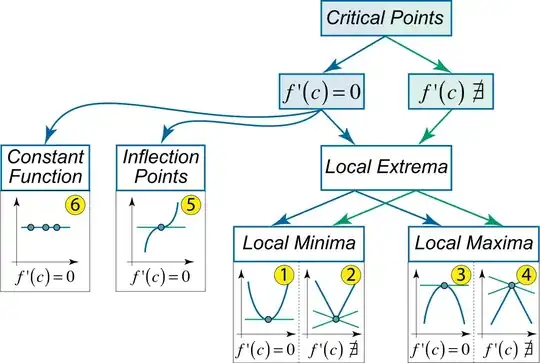For a cubic $ax^3+bx^2+cx+d$, the radicand of the derivative is $b^2-3ac$ and I was wondering if there's a word for this term. I know that the nature of it being positive, zero, or negative will affect how many critical points the cubic has... but is there a name for this?
Also, based on this answer, there are only 6 possibilities? For each positive or negative $a$ value, then there are three possibilities for the "discriminant" (of the derivative)
